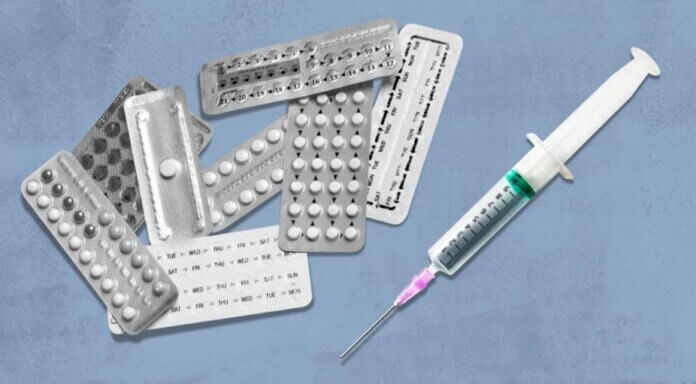People who need assistance paying for birth control can visit clinics to obtain low cost pills and other birth control methods.
Alternative birth control options
Aside from the shot and pills, people can use other prescription or nonprescription methods of preventing pregnancy.
Nonprescription birth control options include:
- female condoms
- male condoms
- spermicides
- sponges
Prescription methods include:
- diaphragms
- implantable rods
- intrauterine devices
- patches
- vaginal rings
People can use a prescription or nonprescription method together with male or female condoms for protection against sexually transmitted infections (STIs). Sponges and spermicide may not prevent STIs.
Frequently asked questions
Below are some of the most common questions and answers about birth control shots and pills.
Is the Depo-Provera shot just as effective as the pill?
The shot offers slightly better pregnancy prevention — 6 in every 100Trusted Source people who receive it will become pregnant in the first year. The pill offers similar protection, with 9 in every 100Trusted Source people becoming pregnant in their first year of taking the pill.
However, both methods are only effective if the person follows recommendations for taking them. A person taking the pill needs to take it at the same time every day, while a person receiving the shot will need to schedule appointments with a healthcare professional every 3 months to maintain their protection.
If a person does not follow the schedule, they have a higher risk of becoming pregnant. A person can also use barrier methods, such as condoms, in combination with the pill or the shot, for further protection.
What should I do if I want to switch from the pill to the shot?
A person should speak with a doctor about switching from the pill to the shot. A doctor can provide any specific guidelines for the individual.
A person should get their first shot 7 days before their last pill and continue taking it for the remaining 7 days.
What should I do if I want to switch from the shot to the pill?
A person should also speak with their doctor about switching from the shot to the pill. They may provide additional, specific instructions to the person.
When switching from the shot to the pill, a person can start the pill within 15 weeks from their last shot.
Do you still get your period on the shot?
A person’s period can change and become irregular when receiving the shot, particularly in the first year. During this time, a person’s bleeding may become unpredictable, heavier, and erratic.
After this, a person’s bleeding often lightens, with some people no longer having any bleeding at all.
Does Depo-Provera cause infertility?
Depo-Provera does not cause infertility. Most people can become pregnant within 10 months of their last injection.
Does the Depo-Provera shot hurt?
Like other shots, it can cause mild discomfort, like a pinch, at the site of the injection.
A person may develop an infection or reaction at the injection site. If this occurs, they should contact a doctor as soon as possible.
Birth control pills and shots are effective ways to prevent pregnancy. Both use similar hormones, so they have similar side effects and risks.
Some people prefer the convenience of only having to get a birth control injection every 3 months, while others may like to receive their birth control pills in the mail as needed.
A person should discuss birth control options with a doctor.











